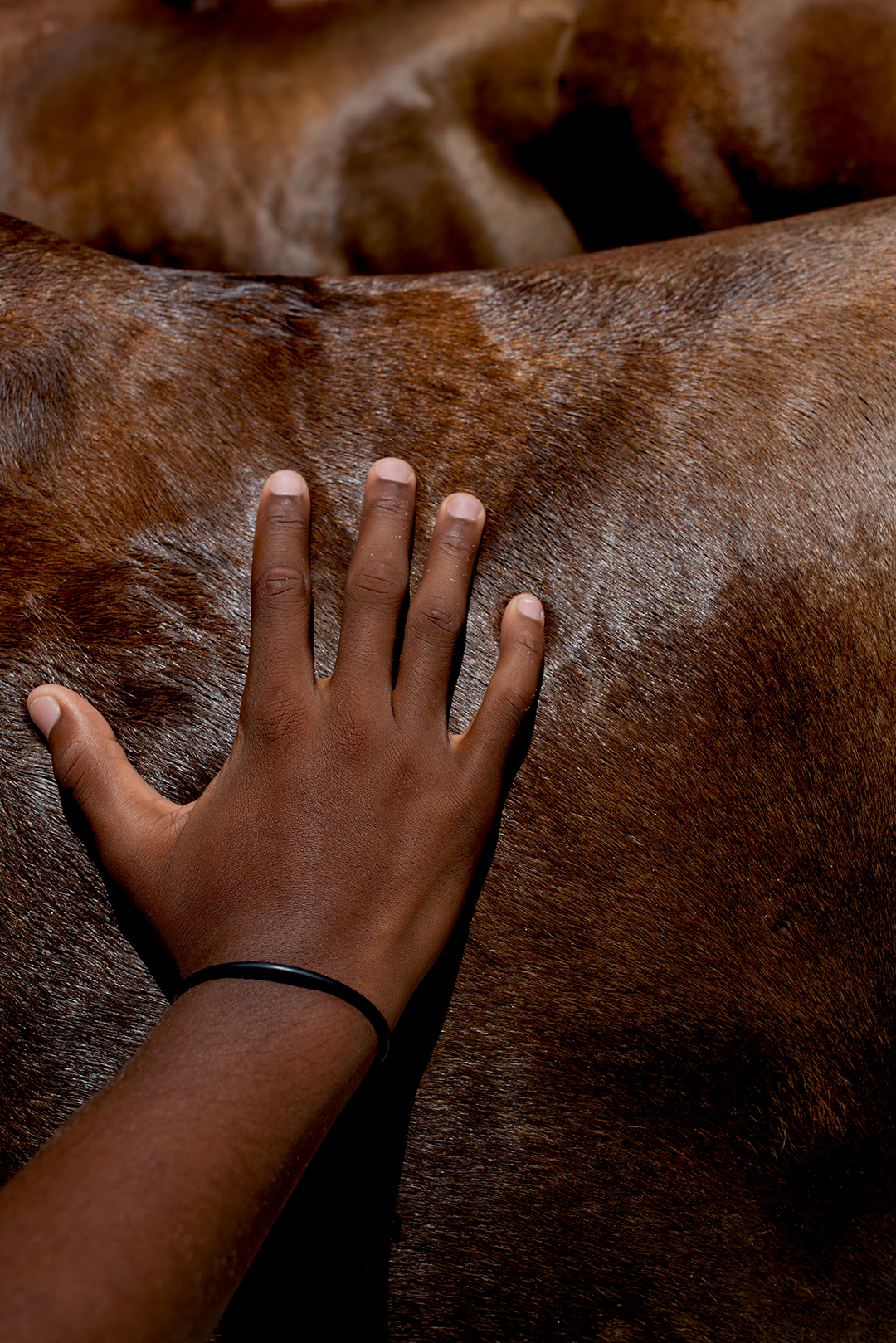In conversation with Sara Urbaez
Edited for length and clarity
Edited for length and clarity
Melissa Alcena:
Portfolio Overview
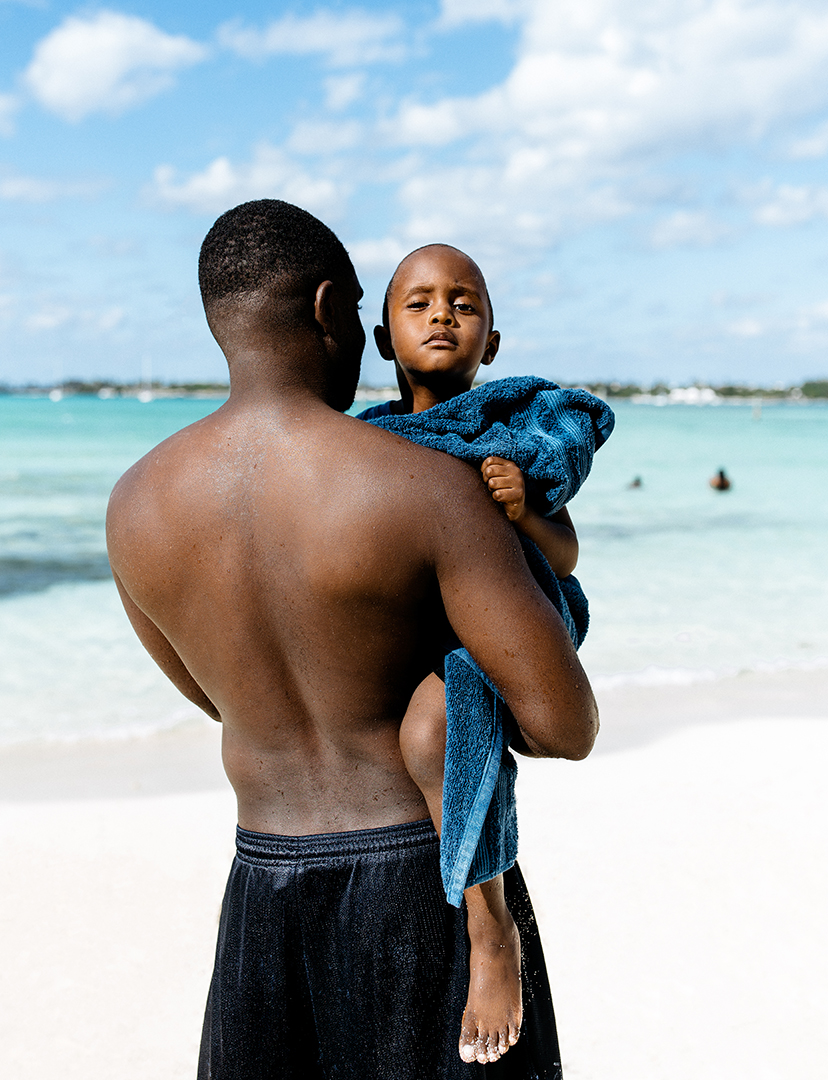
I want to start off by talking about your connection to the island of the Bahamas is this where you were born and grew up?
I was born and raised here in Nassau, Bahamas. I didn't have a strong connection to my culture growing up. My family wasn’t super huge and all of us weren't that connected at that time, which was unusual for a Caribbean family, to be honest — but that's what my situation was.
I didn't feel a connection to my country at all. Also, when your accent isn't as strong, there is this feeling: "Oh, you don't sound Bahamian. You're not one of us. You can't relate to us."
I was introduced to photography early on through my father’s coffee table book. They were predominantly in all these different countries in Africa. I knew that whoever the photographers were — most likely white men — they were trying to bring attention to these different cultures, and I appreciated that at least.
As a hobby, I would take pictures of people because I wanted to know their stories. A camera was a way of exploring that.
I didn't feel a connection to my country at all. Also, when your accent isn't as strong, there is this feeling: "Oh, you don't sound Bahamian. You're not one of us. You can't relate to us."
I was introduced to photography early on through my father’s coffee table book. They were predominantly in all these different countries in Africa. I knew that whoever the photographers were — most likely white men — they were trying to bring attention to these different cultures, and I appreciated that at least.
As a hobby, I would take pictures of people because I wanted to know their stories. A camera was a way of exploring that.
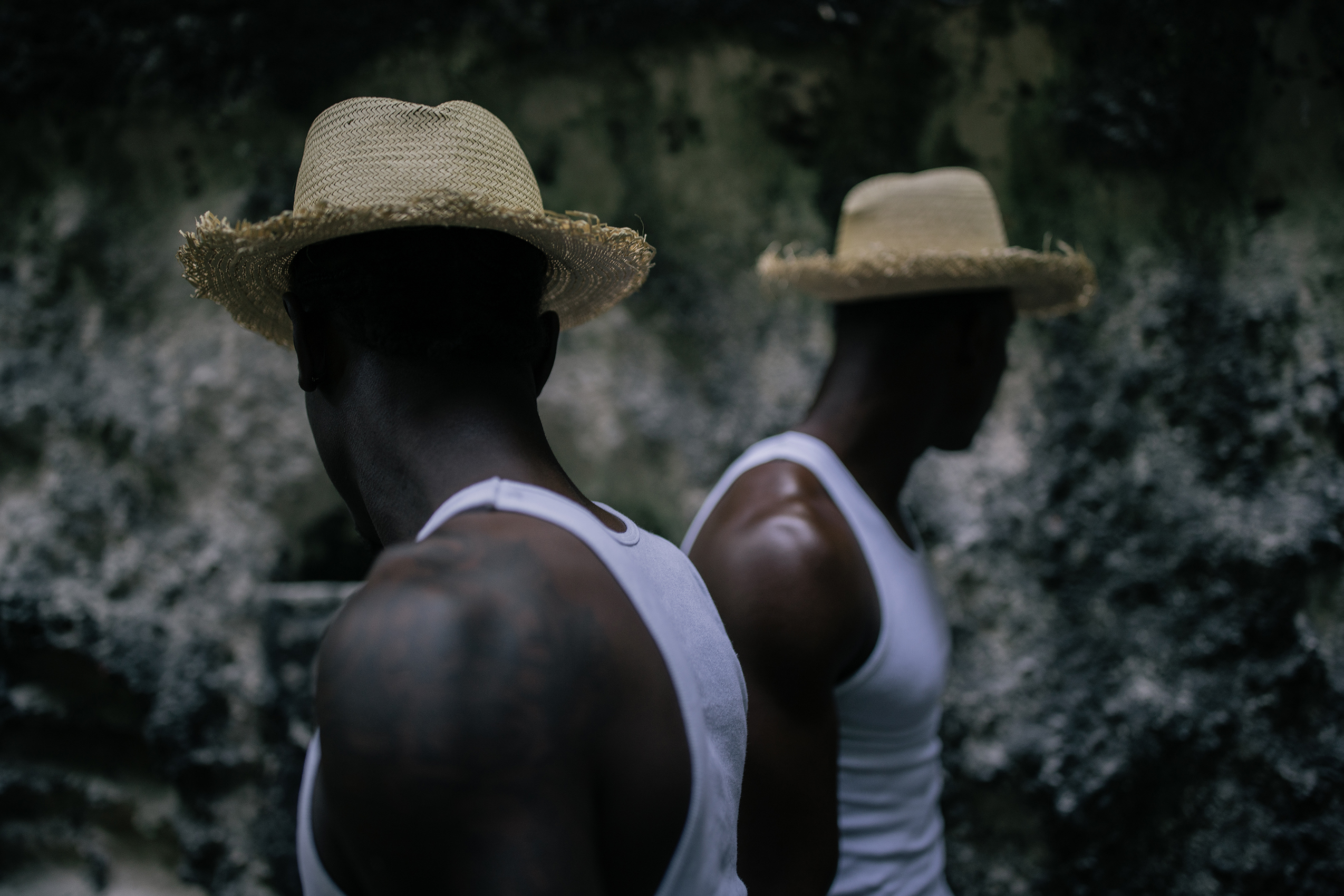
When did this shift happen for you where you became interested in learning about the beauty of your own culture?
I took a photography course at a school in Canada. When my visa was up, I was in the process of applying for a new one, and I found out the protocol had changed.
I was coming to grips with the realities of having to move back to the Bahamas. I didn't know what that meant for me because I had no connection there — I didn't feel like that was home. I was devastated. I was exploring myself as an artist, still learning about myself. I felt like I had work to do in Canada.
I slowly started meeting people, being reintroduced to my culture through my photography. I started to learn the language of my people. I started to understand our culture a lot more, the dynamics, the politics. Before I was reacting, I wasn't engaging. Then I fell in love with my country.
I talked to people about our different perspectives and classes — in this country, there's a lot of classism. When you meet someone, they ask who your people are. They'll ask your last name — it's the leftover from colonialism. We got our independence in the 70s — that's not too long ago.
I was coming to grips with the realities of having to move back to the Bahamas. I didn't know what that meant for me because I had no connection there — I didn't feel like that was home. I was devastated. I was exploring myself as an artist, still learning about myself. I felt like I had work to do in Canada.
I slowly started meeting people, being reintroduced to my culture through my photography. I started to learn the language of my people. I started to understand our culture a lot more, the dynamics, the politics. Before I was reacting, I wasn't engaging. Then I fell in love with my country.
I talked to people about our different perspectives and classes — in this country, there's a lot of classism. When you meet someone, they ask who your people are. They'll ask your last name — it's the leftover from colonialism. We got our independence in the 70s — that's not too long ago.

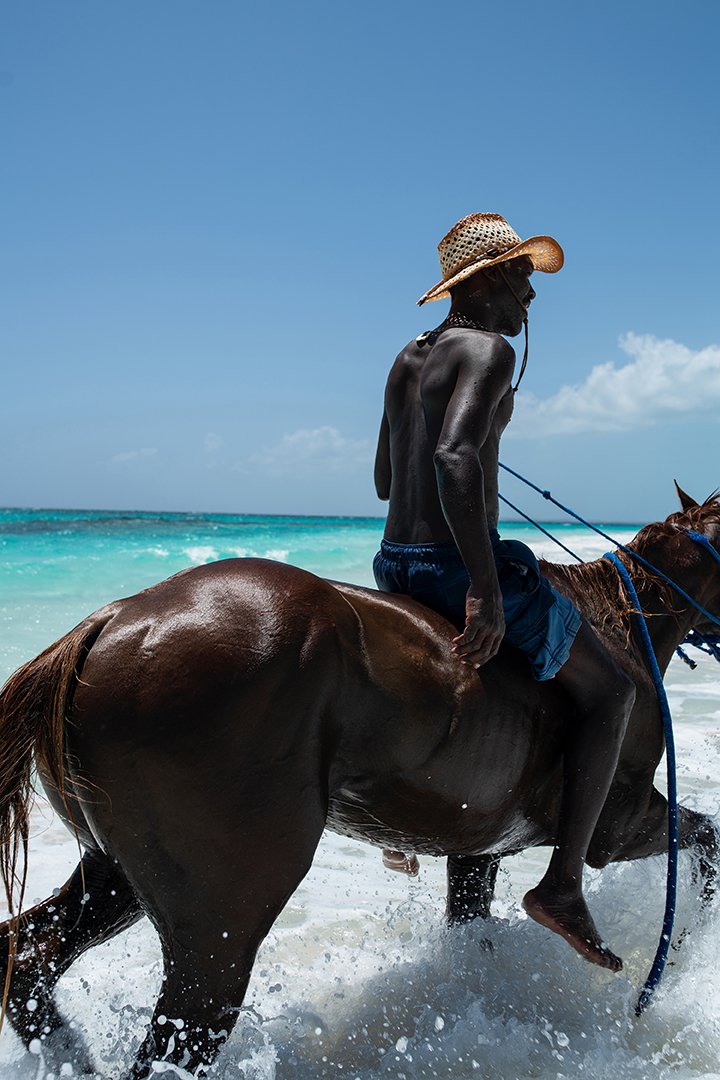
You talk about perspective. When I look at your work, there is a sense of wonder and a deep appreciation. I noticed how beautiful the skin tones look — there's so many different types of skin tone in your imagery. It’s not something I’ve seen in work documenting the islands. What do you want people to know about the Bahamas? Because I have never seen much of any representation of the island.
There's not enough current documentation of the Bahamas at all. There's definitely a lot of older documentation when there was an interest in the 50s to the 70s. You had a lot of the “Life” magazine collection, things like that, the idyllic. What I noticed is a lot of the documentation that I've personally seen about the Bahamas has to do with the people who will take care of you while you're here.
I don't see a lot imagery representing the actual person, it’s more of an outside perspective looking in. There are some Bahamian photographers who have collections and some of their grandkids — who are also into the visual arts — are bringing those back out. Other than family members' photos, you don't see Bahamians being photographed eye-to-eye, in a way that’s representing them, saying, "This is us.”
I don't see a lot imagery representing the actual person, it’s more of an outside perspective looking in. There are some Bahamian photographers who have collections and some of their grandkids — who are also into the visual arts — are bringing those back out. Other than family members' photos, you don't see Bahamians being photographed eye-to-eye, in a way that’s representing them, saying, "This is us.”
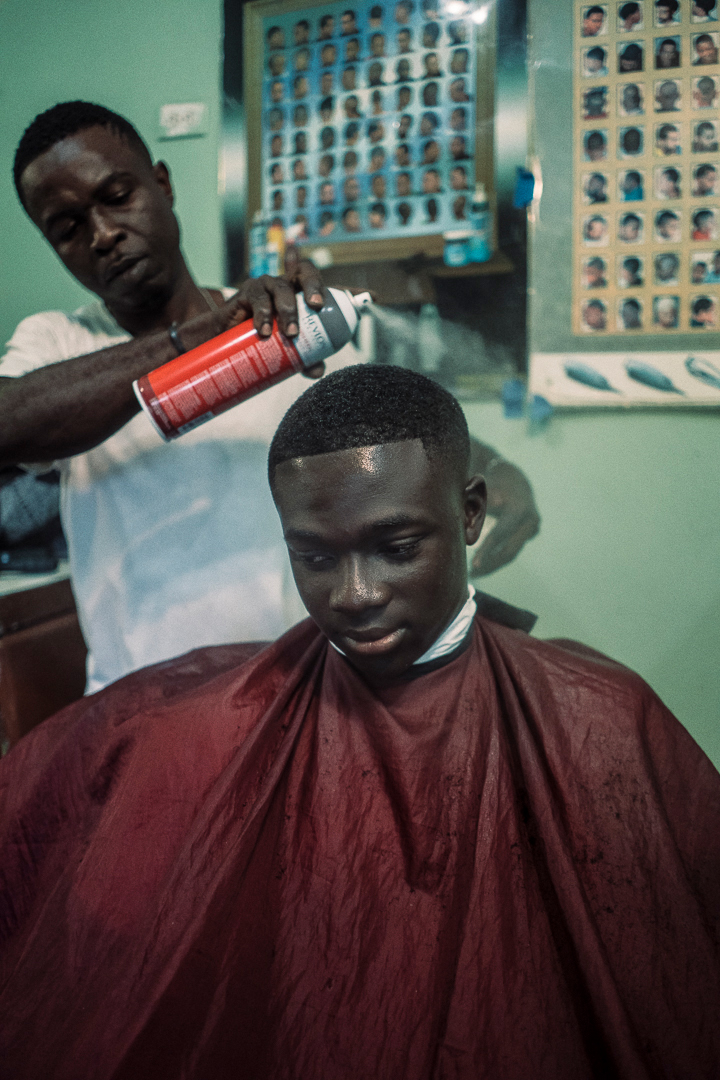
On a level playing field.
Exactly. I am so against any images of Black people where the perspective is looking down on them. I avoid those angles. I never look down on a Black person in my images. To me, especially a Bahamian, when the person sees it, I'm already giving them a perspective of superiority over that person. You know what those images remind me of? Those Feed The Children commercials — and Africa is depicted as full of famine and poverty, these little children are covered in flies. and there's always images with a child looking up, saying “Help us.”

Yes, I agree. That's what is so pervasive. Do you think the way that you are treating skin tones and your attention to that is, in a way, also challenging stereotypes?
First of all, if you want to talk about the history of skin tones and photography, film wasn't even invented to capture our complexions in all of their glory. There's so many shades to being a Black person. It wasn’t until the very last five years I’ve been able to get a foundation that matched my skin tone — I had to mix color. Prior to that, people would be lucky if you found three shades.
When it comes to skin tones, I definitely pay attention. Personally, as a Black woman, I’ve struggled with my own complexion and trying to not only photograph that as correctly as possible. I did not grow up with an accurate representation of my complexion, anywhere.
When it comes to skin tones, I definitely pay attention. Personally, as a Black woman, I’ve struggled with my own complexion and trying to not only photograph that as correctly as possible. I did not grow up with an accurate representation of my complexion, anywhere.

There's so many nuances. There's so much complexity to our beautiful skin colors.
There's so much going on — what do we have to do for people to realize that there's so much to the spectrum that is Blackness. I pay attention to that. I try to remember what my experience was with that person, what their complexion was. Sometimes, if I'm attracted to a person's darker tones, I may try to bring that out, because there's still a lot of colorism within the Black community — darker skin is not as celebrated as it should be.
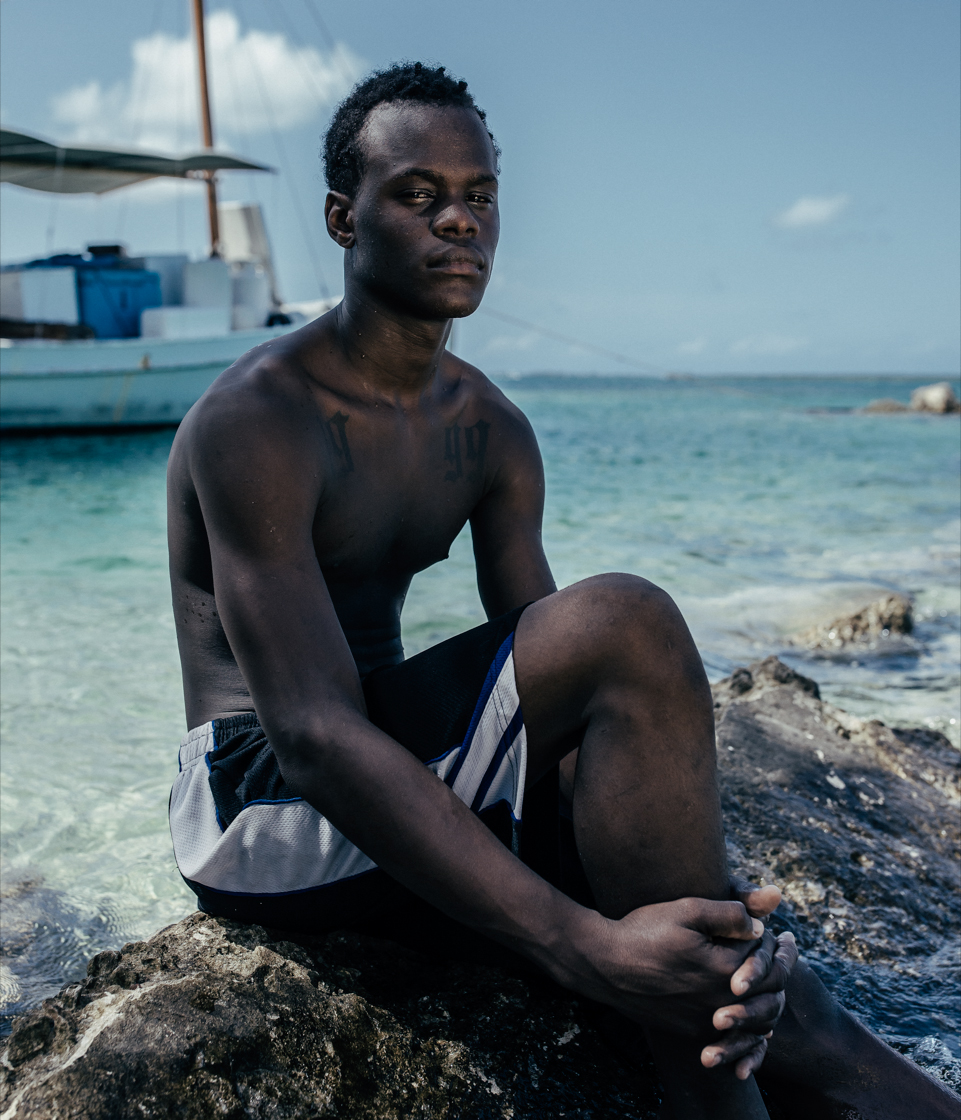
Your portraits feel so intimate. It's interesting that these are not your immediate family members.
I literally meet a lot of these people the first time — a lot of these images will be during a holiday weekend. Holiday weekends in the Bahamas are lots of people going to the beach, lots of traffic, lots of barbecues outside, lots of base music playing.
I'll be looking around and observing, see somebody and the way they move themselves and how they present themselves, and I'm like, "Oh, my God." I'll know — I got to take a picture of that person. I start talking to them, ask them questions about themselves, hang out with them, and then when it's time to take a photo, after I've asked their permission, I've only got at this point maybe 10, sometimes 15 minutes to take their picture, because I've already spent this time annoying them with questions.
I'll be looking around and observing, see somebody and the way they move themselves and how they present themselves, and I'm like, "Oh, my God." I'll know — I got to take a picture of that person. I start talking to them, ask them questions about themselves, hang out with them, and then when it's time to take a photo, after I've asked their permission, I've only got at this point maybe 10, sometimes 15 minutes to take their picture, because I've already spent this time annoying them with questions.

I love hearing about this because this is why I wanted to talk to you and feature this work on LISTO, because it is almost a documentary style approach, but it's very different from parachute journalism, or some outsider coming in and taking a picture quickly of someone. The work takes on different meaning because you are rooted there.
Even when I approach people to take their photos, I don't carry my camera with me when I go to ask them, because that alone to me is the assumption that I am going to get a yes from them. It's psychological to me. If someone came up to me and there's a camera, I feel pressured because I have to act a certain way. I approach people the way that I would like to be respected as well.
A lot of documentary photography is snap, snap, snap, but why can't we document people on their terms? There are communities in the Bahamas that are very historical — some are areas where slaves first settled in the Bahamas. There was a walk that the National Art Gallery did here where we went around in these communities. We had a well-versed historian walk with us and tell us about the history of these neighborhoods. People had cameras and phones with them, and they were taking pictures.
I ended up on this woman's porch and I asked her permission to take her picture. She said, “I will only allow you to take my picture because you asked." I asked what she meant. She said, “We have so many tourists that come up in these areas looking around and taking pictures of us. I'm sitting on my porch, I have a bonnet on my head, my hair is not done, I'm enjoying my space, and they take my picture without my permission. I don't want to be represented that way."
There's this aspect of being Caribbean and being Black — we take a lot of pride in our appearances and the way that we want to present ourselves, we adorn ourselves a lot. When you have people coming from a white gaze taking images of Black people on their porches without their permission— if you know if your granny didn't want to be photographed like that, why would you photograph that woman like that?
A lot of documentary photography is snap, snap, snap, but why can't we document people on their terms? There are communities in the Bahamas that are very historical — some are areas where slaves first settled in the Bahamas. There was a walk that the National Art Gallery did here where we went around in these communities. We had a well-versed historian walk with us and tell us about the history of these neighborhoods. People had cameras and phones with them, and they were taking pictures.
I ended up on this woman's porch and I asked her permission to take her picture. She said, “I will only allow you to take my picture because you asked." I asked what she meant. She said, “We have so many tourists that come up in these areas looking around and taking pictures of us. I'm sitting on my porch, I have a bonnet on my head, my hair is not done, I'm enjoying my space, and they take my picture without my permission. I don't want to be represented that way."
There's this aspect of being Caribbean and being Black — we take a lot of pride in our appearances and the way that we want to present ourselves, we adorn ourselves a lot. When you have people coming from a white gaze taking images of Black people on their porches without their permission— if you know if your granny didn't want to be photographed like that, why would you photograph that woman like that?
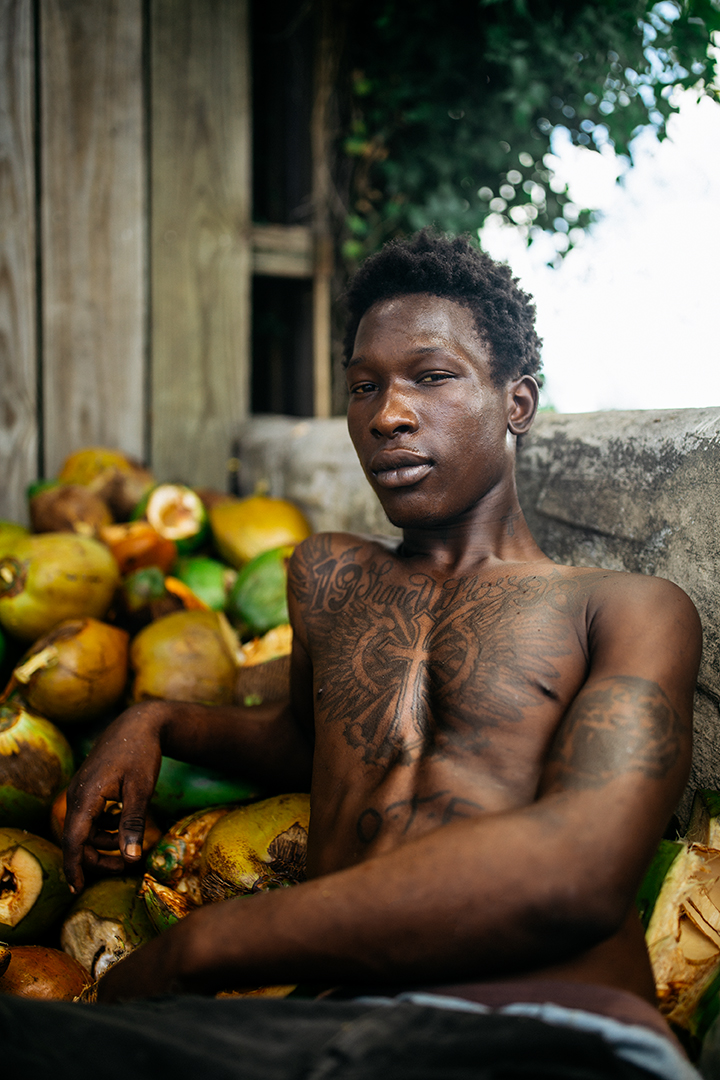
That entitlement of photographers entering a foreign space and treating it as though it is purely there for your entertainment, and for you to take whatever you want from it — is deeply problematic and colonial. If you're genuinely interested, talk to the person you are photographing and get to know their story.
That's what we need more of in the photo industry. We need people to understand consent and permission, empathy, intention. What does it look like when you photograph people in a way that's meaningful — in a way that serves to honor them, their truth and their life, and is not voyeuristic? I have a problem when people go to other people's countries and they don't connect. If you are sent on an assignment and you get to live in another place for a few weeks and you try your best to meet people on a certain level and see what they're doing and understand what they're doing. That’s different. Then from there, you get these meaningful, beautiful portraits and I love that.
